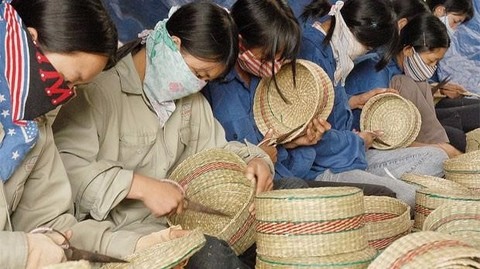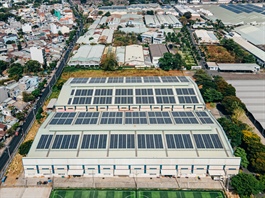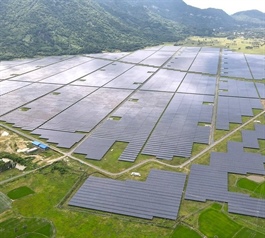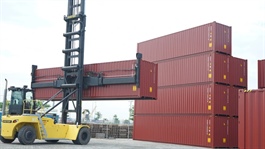Manufacturing enterprises need to adapt to trends to develop: experts
Manufacturing enterprises need to adapt to trends to develop: experts
Besides the factors of price, product quality and delivery time, green and sustainable development are competitive criteria that more and more markets are requiring from suppliers in HCM City as well as across the country.

Micro, small and medium-sized enterprises face many challenges in meeting green standards and applying digital transformation. — Photo vneconomy.vn |
Although manufacturing enterprises in the City are constantly striving to contribute to the recovery of economic growth, many domestic and foreign challenges are affecting businesses.
According to experts, the current global economic context requires manufacturing enterprises to convert production according to market trends, especially product standards that must meet consumer tastes.
Conflicts around the world such as between Russia and Ukraine are creating a series of new difficulties for manufacturing businesses.
In addition, the challenges of inflation, consumer markets and technical barriers are also challenges for manufacturing enterprises to quickly adapt to new market trends.
The EU market has introduced a series of new policies on ecological products, expanding responsibility for manufacturers, supply chain traceability, recycling and special requirements to reduce carbon emissions.
When these series of policies are issued, they will require all countries exporting to the EU market to comply. Obviously, this is a big challenge for manufacturers, including Việt Nam. If Vietnamese businesses want to participate in the supply chain, there is no other option than to comply with consumer regulations.
Bùi Tá Hoàng Vũ, director of the City's Department of Industry and Trade, said the City's index of industrial production (IIP) in June increased only 0.3 per cent over the previous month and increased 7.8 per cent over the same period a year ago.
Meanwhile, the IIP index in the first six months of the year reached a growth rate of 5.6 per cent over the same period last year, the biggest increase in the last three years.
However, the production index of four key industries including pharmaceutical chemistry, food processing, mechanical engineering, and electronic manufacturing in the first six months of 2024 increased by 5 per cent over the same period, 0.6 percentage points lower than the industry-wide IIP.
The production index of the three traditional industries of clothing, textiles, leather and leather products decreased by 2.3 per cent over the same period.
These statistics show that industrial production activities in the City are recovering but may not be sustainable.
Faced with these difficulties, manufacturing enterprises need to proactively change strategies in accordance with market trends and improve quality to meet increasingly strict production standards, experts said.
Nguyễn Anh Đức, chairman of the Association of Việt Nam Retailers and general director of Saigon Co.op, said that switching to production that closely follows market trends is no longer an option but a mandatory requirement. Currently, businesses that want to survive and develop sustainably must overcome "green production" criteria such as meeting waste treatment standards, energy-saving production and waste recycling solutions.
Besides price, product quality and delivery time, green and sustainable development are competitive criteria that more and more global markets are demanding from suppliers.
In additional, applying digital transformation in production and distribution activities is also one of the big challenges for domestic businesses, Đức added.
Many micro, small and medium-sized enterprises do not prioritise greening in production because of many limitations such as human resources and access to capital.
According to a survey by the Ministry of Planning and Investment, 98 per cent of domestic micro, small and medium enterprises face many difficulties in changing their business models to green standards and applying digital transformation.
Therefore, most small and medium-sized enterprises have only just learned about green production models and digital transformation applications without taking actions towards sustainable development.
There are many barriers to carrying out green development, especially micro, small and medium sized units. About 70 per cent of businesses have not been made fully aware of green development and the benefits of pursuing a circular economy.
Foreign retailers possess advantages in terms of capital, technology and expertise, and domestic enterprises are at a disadvantage when trying to go digital, he said.
To enhance their position in the market, manufacturing enterprises need to promote investment in research and development, technological innovation and improvement of production processes according to green and circular trends. Manufacturing businesses also need to focus on building and protecting brands, improving management capacity and developing effective distribution channels.
Manufacturing enterprises also need to change their management style and apply digital transformation to have a continuous flow of data to the factory so that leaders can update and make timely decisions to meet requirements.
In addition to the efforts of businesses, government support also plays an important role.
Policies on capital support, cooperation promotion, infrastructure investment and trade defense capacity enhancement also play an important role in promoting the sustainable development of businesses.






















